






President’s Message
Impact 2018-2024
Greater Risk Creates Greater Potential
Grantee Spotlight
New Breath Foundation is a communityled public foundation that provides pivotal grassroots organizations the sustainable resources they need to give new beginnings to Asian Americans, Native Hawaiians, and Pacific Islanders (AANHPIs) harmed by incarceration, deportation, and other forms of systemic violence in the U.S.
Happy New Breath, all my relations,
Looking back on 2024, I’m energized by the strength of New Breath Foundation’s core focus—Hope & Healing, Keeping Families Together, and Movement Building. Yet I also reflect on the deep challenges we’re up against —threats to the future of democracy and collective liberation. Fear-based rhetoric and misinformation have driven decreased investment in impactful restorative justice practices and grassroots organizations.* This has made it even harder for their transformative work to gain the attention it deserves.
Even with the decline in funding for the communities we support, we’ve remained steadfast in helping our grantee partners unleash their greatest potential. In 2024, despite our limited capacity, NBF demonstrated our leadership by providing six-figure grants to Asian American, Native Hawaiian, and Pacific Islander (AANHPI) grassroots organizations:
• We granted $1.35 million in direct, unrestricted funds to 19 organizations in 6 states in 2024, giving our grantees the flexibility to use the funding in the ways that best serve their mission.
• We have distributed $7.35 million to 62 organizations (8 national, 52 local across 15 states, and 2 international) over the last 7 years.
• We have become thought leaders in the field, with respected media outlets like Inside Philanthropy, brain trusts like Philanthropy Together, and prestigious national conferences like Grantmakers for Effective Organizations seeking our input.
These events are a testament to how New Breath Foundation continues to show up authentically. We inspire hope. We’ve earned the trust of our grantees and funding partners and nurture those relationships. And our colleagues in the community recognize and respect our work.
As we transition into 2025, NBF turns its focus to abundance: an abundance of community, of human connection, and of intentionally sharing the resources we do have. When we follow the lead of grassroots organizations and support their work to keep families together, we press on towards collective liberation and the shared values of racial solidarity work. I hope you’ll join us in leaning into an abundance mindset this year as we build movements and help each other achieve our greatest potential.

Breathin’

Eddy Zheng President & Founder
*Source: Crisol Beliz, Emily Doebler, and Jennifer Lawson, “Evolution and Challenges of Social Justice Philanthropy in a Polarized Era,” Dorothy A. Johnson Center for Philanthropy, Jan. 15, 2025, johnsoncenter.org/blog
We Got Us Fund (WGUF) Cumulative Grantmaking 2021-2024


Every day, New Breath Foundation champions participatory grantmaking and trust-based philanthropy in our giving. It’s in our DNA as funders to trust the wisdom of directly impacted leaders in grassroots movements. We know that those closest to the challenges also hold the keys to their solutions.
Our Community Advisory Committee (CAC) plays a key role in our participatory approach to funding. The group is composed of NBF grantees, board members, and staff who have walked the very paths we work to transform. Their feedback and input touch every aspect of our grantmaking process, from nominations to grantmaking and programs. Time and again, we have our CAC to thank for funding decisions that resonate with community needs.
Trust-based philanthropy is the counterpart to participatory grantmaking. It breaks down traditional barriers to funding through six principles: unrestricted grants, research, feedback, transparency, simplified processes, and support beyond the dollar. No complex grant applications to complete, long waiting periods, or gatekeeping are involved. In other words, we leave it to our grantees to use NBF funding in the areas within their organization that need it most—and we make sure that happens quickly.
Each year, NBF pushes further in shifting power to AANHPI communities impacted by systemic injustice. Lived experience is an asset, not a risk or liability. That’s why we build leadership pathways for these individuals in our movement—they are the foundation for lasting change.
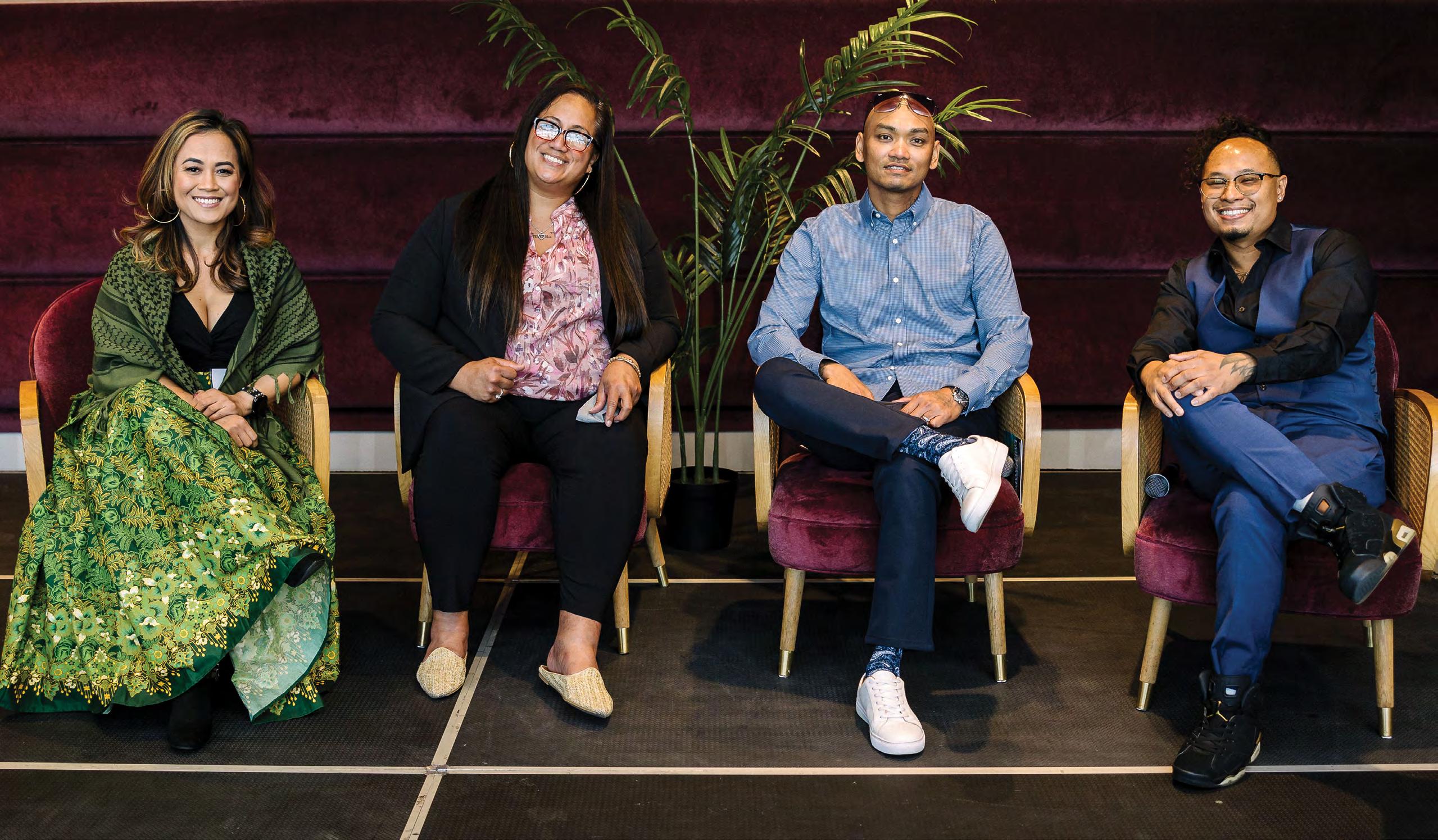
New Breath Foundation prioritizes cross-racial solidarity, community safety, alternatives to incarceration, and ending detention and deportation. We’ve highlighted four We Got Us Fund grantee partners whose work transforms lives in each of these areas.
d efinition:
Community safety: actions, plans, processes, and programs that prevent harm before it happens or address harm in ways that don’t rely on state systems that increase violence.

dAtA:
A 2022 Pew Research Center study shows that 58% of Asians in the U.S. say they have been treated unfairly due to their race or ethnicity, and 81% say violence against their communities is increasing. Stop AAPI Hate recorded 12,255 incidents of anti-Asian violence between 2020 and 2023.
Community safety is not prisons and jails. At New Breath Foundation, community safety includes community care, healing justice, alternatives to incarceration and criminalization, transformative and restorative justice efforts, meeting basic needs, and so much more.

One strong example of leadership in this space is the FOU Movement, whose top priority is shaping true community safety for Samoans in the United States. Fa’atasica O Uso (FOU) means “gathering the brothers” in Samoan. Yet separation marks the lives and lineage of those who belong to the FOU Movement. In the 1960s, Samoan families left their homelands for the United States in seach of a better life. Brand new to American culture and left to navigate unfamiliar neighborhoods on their own, they sought safety and a sense of belonging. Some youth gravitated to gangs that promised them these very things. Gang rivalry soon pitted Samoans against each other in Los Angeles. Division followed Samoan families from there, manifesting in all ways—by being locked up, transferred between prisons, losing loved ones to violence, and struggling with substance addiction.
The FOU’s solution? Stop the cycle and unite. “One of the things that brought us together is that we all come from some dark places,” says Bell Taulua, FOU Member, who served three decades in prison. The FOU Movement works successfully to heal the divide throughout Samoan communities. Members of the group can now step into neighborhoods they’d never risk their lives to visit in the past. Public safety is a top goal for the FOU. The group relies on community and faith to help prevent harm through its youth outreach program and repair it through its anti-recidivism and recovery work. As an organization that “opposes the illusion of what the gang life offers,” FOU Movement members push for both violence prevention and healing as ways to take accountability and repair past harms.
Beyond offering financial support to grantees like the FOU Movement, New Breath Foundation staff seek to educate themselves on different models of community safety. Our Collective Learning series on Transformative and Restorative Justice brought in guest speakers, discussed relevant articles, and helped clarify our own definitions of these important and liberating practices.
d efinition:
Cross-racial solidarity: actions, rooted in both relationships and analysis, that historically marginalized communities of color take to positively impact each other.
dAtA:
Black and Asian solidarity in the U.S. goes back at least as far as Frederick Douglass. In 1869, the famous abolitionist gave a speech called “Composite Nation,” in which he argued in favor of Chinese immigration to the U.S. He urged Americans not to fear Asian languages, culture, or free migration.
(Source: asianamericanedu.org)

VillAge
Cross-racial solidarity captured the public’s interest again recently in 2021. The murder of George Floyd and antiAsian violence dominated headlines. Black and Asian groups joined forces in their fight against injustice. In 2024, cross-racial solidarity remains as crucial to communities of color seeking justice as ever, and organizations are deepening their practices around it.

Ke-TayJah Morris first experienced the power of cross-racial solidarity when she joined SEAC Village as a member of their youth programs. Although SEAC Village was then a predominantly Southeast Asian space, “it taught me more about my Blackness than I ever knew,” she says. Today, Tay is their Immigration & Anti-Deportation Organizer. She sees how Black and Southeast Asian communities face the same concerns. The War on Drugs of the 1970s targeted Black and Brown neighborhoods, where Southeast Asian communities relocated after the U.S. wars of the time. Immigration and mass incarceration became linked. “The same cinder block is sitting on top of all of us—we can’t lift it separately,” Tay says. Her face glows when she describes one thing she loves about her work: showing up with a bag of groceries at an auntie’s door. “Being able to see that gratitude, and knowing that you have that trust from them, that’s more than anything monetary I could receive from this,” she says. Today, a collective composed of many former youth members like Tay runs SEAC Village. They remain deeply committed to the SEAC vision of collective, multi-racial liberation in Charlotte, North Carolina, and the U.S. South.
All NBF grant recipients are by invitation only. One criterion grant reviewers look for is cross-racial solidarity. Advocacy and organizing, narrative change, and culturally relevant healing and harm prevention are all inroads to achieving this. Eddy Zheng, NBF President & Founder, is a particularly strong supporter of cross-racial solidarity efforts. He helped bring to life the annual Lunar New Year/Black History Month event in San Francisco. At the event’s inception, Black and Asian communities vowed to commit to cross-cultural engagement and learning. The norm of celebration and unity replaced the norm of violence.
d efinition:
Detention and deportation: the experience of people—often people of color without U.S. citizenship—being separated from their families and communities, housed in facilities, and ultimately removed from the country with few or no opportunities to return.

M n8
Cambodians came in waves to the U.S. after fleeing labor camps and the genocide of the Khmer Rouge in the 1970s. In the early 2000s, immigration raids in Cambodian communities swept the U.S. hordes of families scrambled to learn how to organize and advocate—or risk seeing their loved ones deported with little chance of return.
dAtA:
Between 2021 and 2023, ICE deportations to Asian countries increased 105%. Deportations to Pacific Island countries jumped a whopping 1650%.
(Source: ICE’s FY 2023 Annual Report)

Montha Chum’s parents became separated while fleeing the chaos and violence of the Khmer Rouge. They reunited in a Thai refugee camp where Montha was born. The family eventually relocated to Minnesota after receiving sponsorship to come to the U.S. There, Montha and her siblings struggled as teens coming of age amidst poverty and racism. In 2016, ICE detained eight Cambodians living in Minnesota, threatening them with deportation to a country that most of them couldn’t remember—or weren’t even born in. One of the detained was “Shorty,” Montha’s youngest brother, who was born in the same refugee camp as Montha. Along with the other seven families, they started the #ReleaseMN8 campaign. The movement quickly gained momentum and united the Cambodian community to fight back. ReleaseMN8 staged rallies, contacted the Cambodian embassy, and brought together people from all walks of life to stop the eight detainees’ deportations. Their tireless
advocacy helped set three of the eight detainees free—including Shorty. Montha now leads MN8, the nonprofit organization that emerged from that campaign. MN8 has a strong base rooted in fighting family separation. They run civic engagement and issue-based campaigns, undertake legislative advocacy, and offer legal casework, support services, in-language programs, and leadership development for those in Southeast Asian communities in the broader Twin Cities area.
To better understand the needs of grantees like MN8, who fight unjust deportation efforts every day, NBF organized a listening tour to Cambodia with several community partners in 2019. During that trip, we identified a critical need for mental health support. In response, an NBF grantee partner created New Light Wellness (formerly at the Center for Empowering Refugees & Immigrants also known as CERI) to offer a safe space to deported Cambodian community members where they can share with one another. The listening tour also led us to form Kites to Southeast Asia, an advocacy coalition started by New Breath Foundation and its grantee partners, APSC, CERI, MN8, and New Light Wellness. Together, we equip unjustly deported individuals with resources, community support, and access to legal assistance. We also partner with other aligned Southeast Asian organizations to amplify awareness of issues deportees face and advocate for fair, just U.S. immigration policies.
d efinition:
Incarceration: the state of being confined in prison, jail, detention centers, mental institutions, or otherwise held captive by an institution against one’s will; imprisonment.
dAtA:
Kanaka Maoli, or Native Hawaiians, are overrepresented in state prisons. They compose 24% of the population of Hawai’i but over 39% of incarcerated persons. (Source: “The Disparate Treatment of Native Hawaiians in the Criminal Justice System,” 2020. Office of Hawaiian Affairs)
ohAnA h o’opAkele
The 1893 overthrow of the Hawaiian Kingdom included an attempt to erase Kanaka Maoli identity and culture. Mass incarceration soon followed as the systemically racist American prison system permeated the islands.
Ohana Ho`opakele began as a movement to oppose a new prison build on Hawai‘i Island. Urged by their kupuna (elders) to find a solution, the group turned its eye to the Pu`uhonua—a traditional healing village or Wellness Center—as the alternative model to traditional incarceration in Hawai‘i. Ohana Ho`opakele helped to pass Act 117 into law in 2016. The legislation directed the Department of Public Safety (DPS) to work with Ohana Ho`opakele and other restorative justice groups to plan for a Pu`uhonua. Ohana Ho`opakele also pushed for “Faith Pods” to be initiated in all Hawai‘ian correctional centers. These areas provide safe spaces where a person can begin their healing journey as soon as they’re incarcerated. The group also works to increase the compassionate release of kupuna from prison. In 2023, they celebrated the long-awaited return home of Van Keoki Kahumoku, their Board President, after he spent decades in prison. Their agile mobilization and strong experience raise the hope of helping the release of even more pa`ahao (incarcerated people) from an overcrowded prison system.
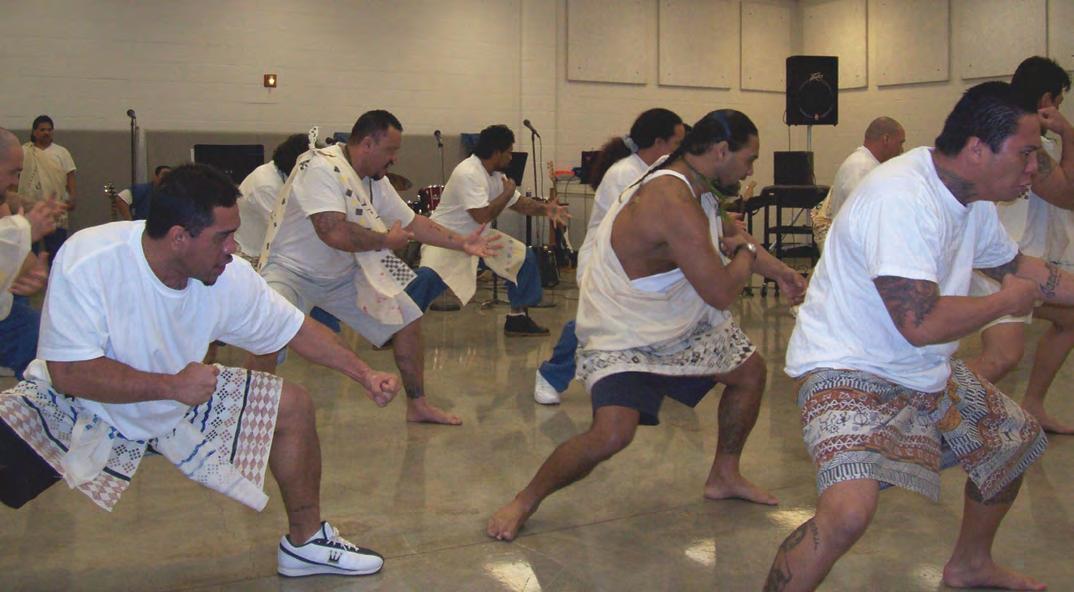
What’s more, in 2024, the Hawai‘i Department of Public Safety was renamed the Department of Corrections and Rehabilitation. All DPS law enforcement workers moved to the Hawai‘i Department of Law Enforcement. That important adjustment allows the newly established Department of Corrections and Rehabilitation to focus solely on improving rehabilitative programs and services for better outcomes in custody and care of incarcerated persons. According to Ohana Ho’opakele, this change indicates a shift in the right direction. Ohana Ho`opakele believes that right now is a unique time to help accelerate even more positive change in the state’s rehabilitative and healing system.
NBF is well acquainted with the disastrous impacts of incarceration on AANHPI communities like the Kanaka Maoli. Our organization is unique in that it’s a foundation led by a formerly incarcerated individual. But we hope not to remain an outlier in this context. NBF works to normalize the leadership of directly impacted people. Our Community Advisory Committee mostly includes formerly incarcerated leaders who are deeply committed to movement work. As is evident in the case of Ohana Ho’opakele, with directly impacted people guiding solutions, real change is possible.
Asian American Resource Workshop (AARW)Boston, MA | The AARW is a political home for panAsian communities in Greater Boston. The group is a member-led organization committed to building grassroots power through political education, creative expression, and issue-based and neighborhood organizing.
AYPAL - Oakland, CA | AYPAL’s mission is to empower Oakland’s low-income Asian and Pacific Islander immigrant and refugee families to be leaders in school reform and neighborhood change.
Khmer Anti-Deportation & Advocacy Group (KhAAG) - Seattle, WA | The KhAAG is dedicated to advancing the rights and welfare of all refugee and immigrant communities by offering support, assistance, and guidance in navigating the immigration system in the United States.
Ohana Ho`opakele - Hilo, HI | Ohana Ho`opakele means “a family that restores.” Their mission is to heal the afflicted and the afflicter, heal the damage of the crime, reintegrate the offender into the community, and restore wholeness to communities.
We provide one-time continuation funds to our grantee partners when their last grant payment was made 12+ months. These grants to previous We Got Us Fund recipients serve as investments in recognition of their crucial, ongoing role in the movement. The funding is in service of the ongoing relationships between these organizations and NBF. We were pleased to be able to offer nine additional continuation grants in 2024 to the following grantee partners:
API-RISE - Los Angeles, CA
Asian Prisoner Support Committee - Oakland, CA
‘Ekolu Mea Nui - Honolulu, HI
Minnesota 8 (MN8) - Saint Paul, MN
Massage Parlor Outreach Project (MPOP)Seattle, WA
Oakland Pacific Islander Network (OPIN)Oakland, CA
SEAC Village - Charlotte, NC
VAYLA - New Orleans, LA
VietRISE - Santa Ana, CA
Arizona AANHPI for Equity - Tempe, AZ | Arizona Asian American Native Hawaiian and Pacific Islander for Equity (AZ AANHPI for Equity) is a state-wide organization striving for equity and justice by building power through communitydirected organizing, increasing civic engagement, and empowering young leaders.
Asian Refugees United - Oakland, CA & Harrisburg, PA | Asian Refugees United (ARU) is an art and healing leadership center. Their mission is to cultivate and restore wholeness in communities impacted by displacement through embodied training programs, collective power-building, ancestral practices, and connection to land.
Arab Resource Organizing Center - San Francisco, CA | The Arab Resource and Organizing Center (AROC) is a grassroots organization working to empower and organize our communities toward justice and self-determination for all. At the national level, AROC engages in movement formations to build power and win change at local, regional, national, and international levels.
Pasifika Urban Roots - San Francisco, CA | Pasifika Urban Roots (PUR) cultivates opportunities for Pacific Islander young people to embrace their identity and thrive in knowledge, health, and advocacy. Their vision is a thriving Pacific Islander community.
Project-Respectt, Inc. - Los Angeles, CA | Project Respectt’s mission is to foster equity, justice, and holistic well-being within marginalized communities— with a focus on Native Hawaiians and Pacific Islanders—to overcome socioeconomic barriers and achieve self-sustainability.
Yuri Kochiyama Solidarity Fund - National | The Yuri Kochiyama Solidarity Project carries on Yuri’s legacy through strengthening BIPOC solidarity, building community through art and activism, providing learning resources for young people to promote anti-racism, and teaching about the history and shared experiences of oppression and resistance by people of color as well as examples of successful multicultural community-building efforts in the United States.
*In 2024, 85% of the overall budget was allocated to direct grantmaking, grantee capacity building, and other programmatic activities. the majority of NBF We Got Us Fund grantee partners are emerging organizations with budgets under $1 million, prompting a strategic investment in
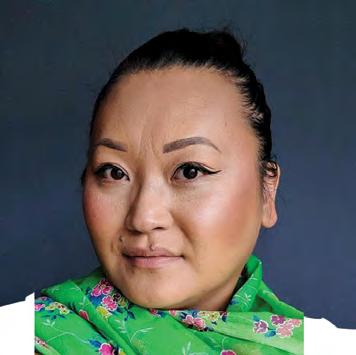
““We forget the diversity of individuals who are actually impacted by immigration. Here in Minnesota, people forget that we are a border state.”
- Nancy Vue Tran, Director of Development, Southeast Asian Freedom Network (SEAFN)
Anti-Asian violence and cross-racial solidarity intertwine. Hate will exist if we don’t know each other. Practicing cross-racial solidarity shows that we stand with one another and that the struggles one community has are the same as another, regardless of race or color… Having the ability to collaborate and show solidarity with every community will foster lasting relationships that were once thought to be unattainable.”

- Lon Chhay, Executive Director, Asian Solidarity Collective

“The most effective way for individuals and foundations to stand in solidarity with communities of color is to invest where the pilina* already exists, where communities are in a position to define what communities need most, and communities ultimately determine where the funding goes. We don’t just know what each other does; we know each other.”
- Micky Huihui, Executive Director, Hawai’i People’s Fund
*Pilina is a Hawai‘ian term for “deep connection” or “deep relationship”
New Breath Foundation is incredibly grateful for the generous support from the following institutions who helped advance our mission to mobilize resources in support of AANHPI communities:


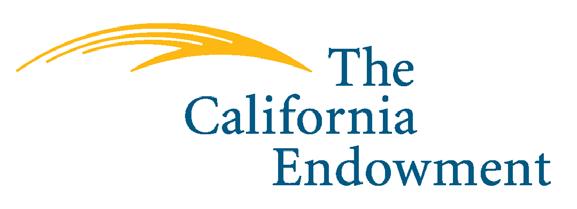
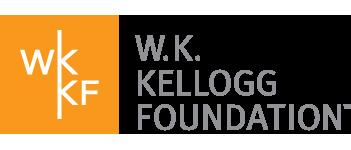








Meadow Fund
Orr Family Foundation
We would also like to thank our generous individual donors, including those who give from Donor Advised Funds and those who want to remain anonymous.
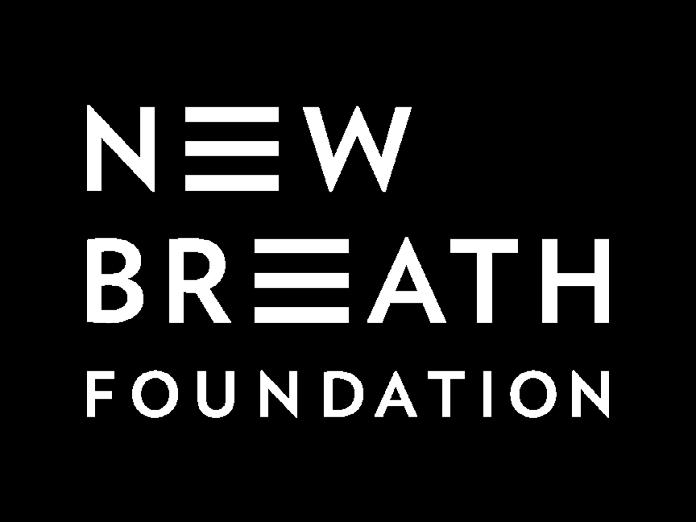
Contents:
President’s Message - Page 3
n ew bR eAth f oundAtion teAM
Eddy Zheng President & Founder
Stephanie Gee Sr. Director of Operations & Communications
Maya Iwata Director of Strategic Partnerships
Claudia Leung Director of Programs
Mari Yamagiwa Program Manager
Thy Vu
Development & Operations Coordinator
@newbreathfoundation new Breath Foundation
@newbreathfoundation
Impact 2018-2023 - Page 4
b oAR d of d i R e CtoR s
CoMM unity AdVisoRy
CoMM ittee Me M be R s
Transformative Impact - This is How We Get to Safety - Page 5
2023 Grantees - Page 6
Zachary Nightingale Chair
Grantee Spotlight - Pages 7-8
Liyah Birru
Administrative Coordinator
Survived & Punished National
Community Advisory Committee - Page 9
Immigration Attorney Partner, Van Der Hout LLP
2023 Financials - Page 10
Lon Chhay
New Breath Appreciation - Page 11
Jonny Moy Treasurer
NBF Team & Board - Page 12
Program Officer, Immigrant Rights and Inclusion
Y&H Soda Foundation
Jina Freiberg Secretary
Senior Grants Manager
Katz Amsterdam Foundation
McArthur Hoang
Reentry Manager
Asian Prisoner Support Committee
Luigi Fu
Project Director
The Leaders Trust
Isabelle Leighton
Executive Director
Donors of Color Network
Daniel Lee Director of Philanthropic Transformation Solidaire Network
Aakar Vachhani Managing Partner Fairview Capital
Keith Wattley*
Founding Executive Director Uncommon Law
Sachi Yoshii Board Member
Northern California Grantmakers Advisory Board JustFund
*completed board term in 2024
Executive Director
Asian Solidarity Collective
Alina Fa’aola
Founder, Executive Director
Oakland Pacific Islander Network
Micky Huihui
Executive Director
Hawai‘i People’s Fund
Tin Nguyen
Coalition Coordinator Decarcerated Orange County
Leesa Nomura
Membership Organizer
California Coalition for Women Prisoners
Ny Nourn Co-Director
Asian Prisoner Support Committee
Thanh Tran Filmmaker
Finding Má
1999 Harrison Street, Suite 1800 Oakland, CA 94612
(510) 560-6228
www.new-breath.org
@newbreathfdn stay connected
